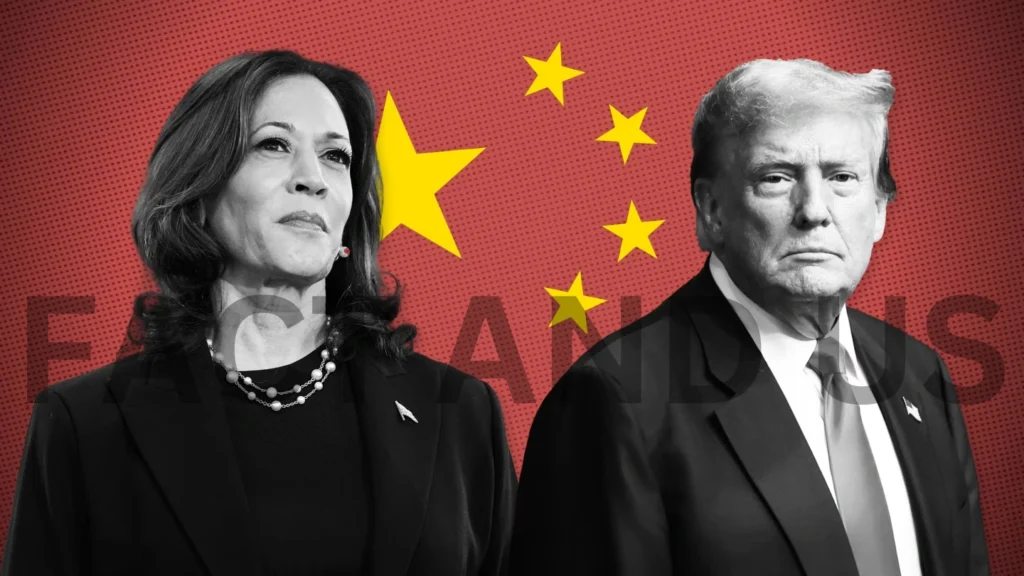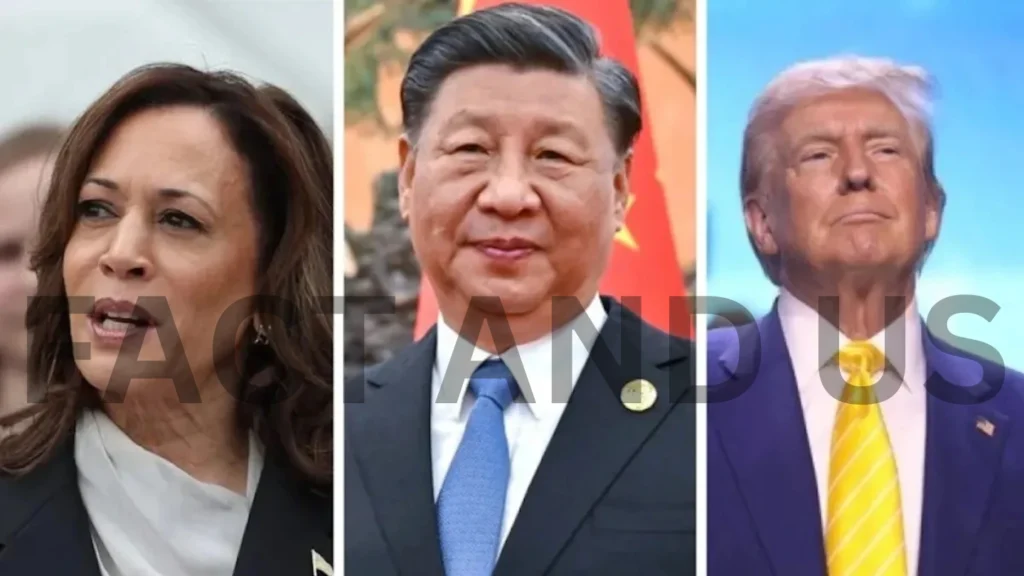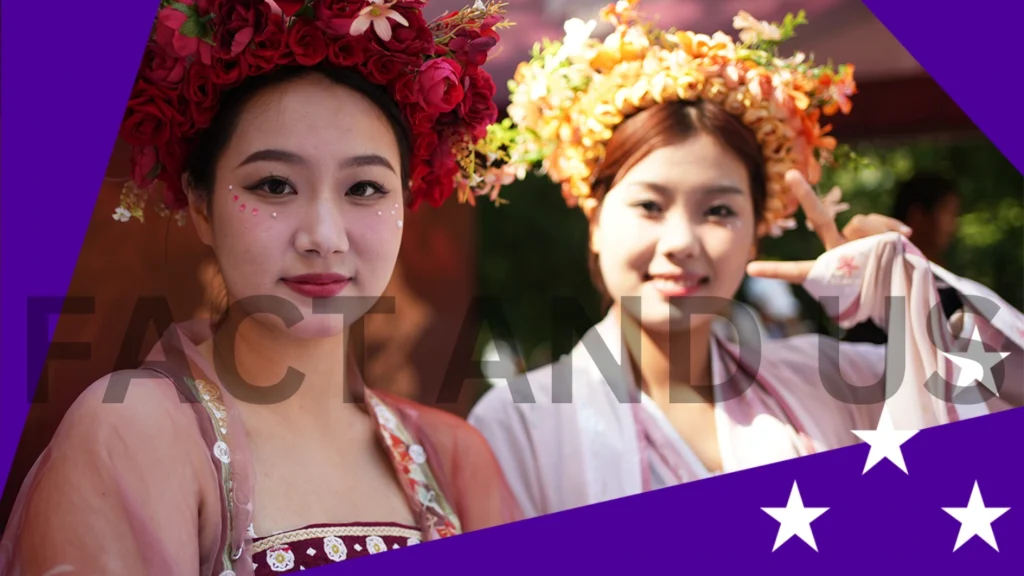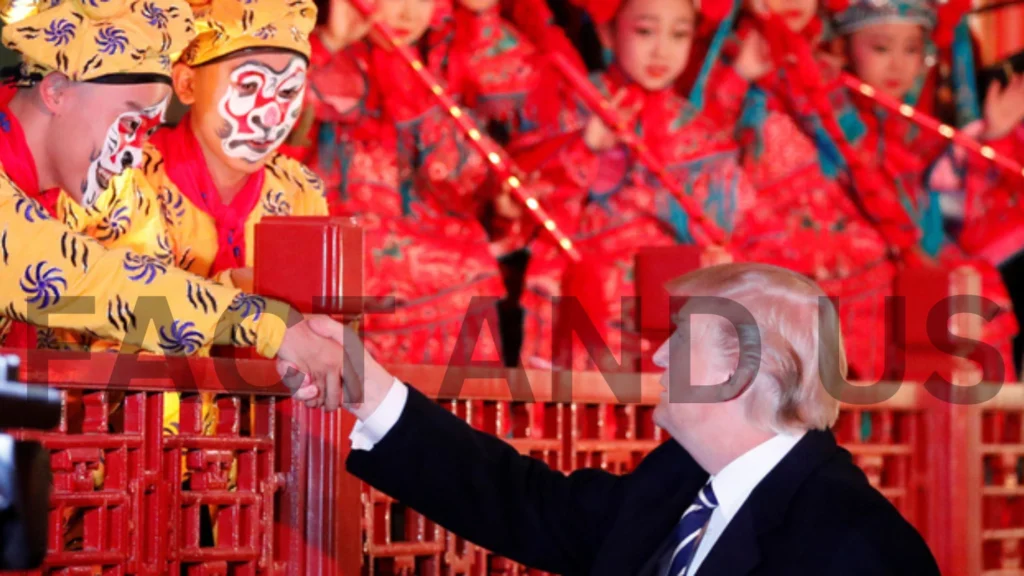Harris or Trump In China, people are following the US election with keen interest and some anxiety. They fear what could happen next at home and abroad, whoever wins the White House. “None of us wants to see a war,” says Mr Xiang, as the music in the park reaches a crescendo and a nearby dancer elegantly spins his partner.

He has come to Ritan Park to learn dance with other seniors. They gather here regularly, just a few hundred metres from the Beijing home of the American ambassador in China. In addition to new dance moves, the looming US election is also on their minds.
It comes at a pivotal time between the two superpowers, with tensions over Taiwan, trade and international affairs running high. “I am worried that Sino-US relations are getting tense,” says Mr Xiang who’s in his sixties. Peace is what we want, he adds. A crowd has gathered to listen to this conversation. Most are reluctant to give their full names in a country where it is permissible to talk about the US president, but being critical of their own leader could get them in trouble.
They say they are worried about war – not just about a conflict between Washington and Beijing but an escalation of current wars in the Middle East and Ukraine. That is why Mr Meng, in his 70s, hopes Donald Trump will win the election.


“Although he imposes economic sanctions on China, he does not wish to start or fight a war. Mr Biden starts more wars so more ordinary people dislike him. It is Mr Biden who supports Ukraine’s war and both Russia and Ukraine suffer great loss from the war,” he said. Some sisters recording a dance routine for their social media page chip in. “Donald Trump said in the debate that he will end the war in Ukraine 24 hours after he takes office,” says one.
Contents
The Trump Years: A Rollercoaster Ride
During Trump’s presidency from 2017 to 2021, US-China relations took a sharp turn, marked by an escalating trade war, diplomatic tensions, and military confrontations in the South China Sea. For many in China, Trump’s presidency was a mix of anxiety and opportunity.
Chinese business owners and manufacturers were hit hard by tariffs and trade barriers, leading to concerns about the long-term economic impact. Yet, Trump’s policies also catalyzed domestic innovation as China pushed to become more self-reliant in technology and manufacturing.

“Trump’s policies forced us to invest in our own industries,” said Zhang Wei, an entrepreneur in Shenzhen. “But there was always uncertainty about what he might do next.” Some in China admire Trump’s boldness and his willingness to stand up to political norms, though this sentiment is often more common among younger generations who see his strongman image as relatable to their own leaders.
Harris: Continuity or Change?
Kamala Harris, as the vice president under Joe Biden, represents continuity with the current administration’s approach, which has been tough on China but less unpredictable than Trump’s. While Biden has maintained many of the trade policies introduced during the Trump era, his administration has focused more on rebuilding alliances, particularly in the Indo-Pacific, to counterbalance China’s rise.

For the average Chinese citizen, Harris is an unknown figure, compared to the more familiar Trump. Her campaign has been quieter on China compared to the more vocal Trump. However, some in China expect her to continue the Biden administration’s stance of strategic competition without the drama that characterized US-China relations during Trump’s term.
Li Ming, a professor of international relations at Peking University, said, “Harris is seen as a moderate, someone who might take a more diplomatic approach. But many here think she will still prioritize the US’s interests in slowing China’s growth.”
What Do Chinese People Want?
For many ordinary Chinese citizens, what matters most in the US election is stability. The ongoing tensions between the two countries—whether over trade, technology, or geopolitical influence—create uncertainty that filters down to everyday life. “We hope for better relations with the US, especially in terms of trade,” said Liu Jianhua, a Shanghai-based exporter. “We don’t want the hostility. It affects business and the economy.”

At the same time, there’s growing nationalist sentiment within China, where many support the government’s efforts to stand up to the US. Online forums are often filled with patriotic messages and criticism of American policies. “There is a pride in how China has handled the pressure from the US,” said Zhang Wei. “But there’s also a desire for both countries to cooperate more, especially on issues like climate change or global trade.”
stay connected with fact and us for more such news.
